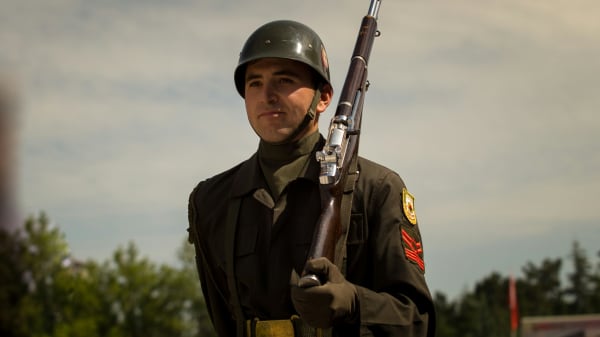Engaging in Special Forces Jobs is a remarkably fulfilling career path for individuals who yearn for a life less ordinary. From covert missions to high-intensity warfare, professionals in this field stand out among military personnel for their exceptional physical prowess, excellent critical thinking skills, and unparalleled resilience. However, preparing for this esteemed profession can be challenging. Not everyone can qualify for Special Forces. So, how exactly does one qualify?
Understanding Special Forces Jobs
Special Forces Operators, often referred to as elite soldiers, perform various roles, such as:
- Direct Action
- Unconventional Warfare
- Special Reconnaissance
- Foreign Internal Defense
- Counter-Terrorism
These high-stress responsibilities require individuals with exceptional skills in areas like weaponry handling, land navigation, communications, medical aid, and more. Moreover, mental toughness, endurance, and decisiveness are valuable assets in this military occupation. Specific positions also necessitate second-language skills, often in less common languages like Pashto, Arabic, or French.
Qualifications for Special Forces
In order for an individual to make their way into Special Forces, some basic requirements need to be met:
- Age: Most Special Forces units require individuals to be between 20 and 32 years old.
- Gender: Both men and women can qualify, depending on the specific unit and country.
- Citizenship: Generally, you need to be a citizen of the country whose Special Forces you wish to join.
- Education: The minimum educational requirement is typically a high school diploma or equivalent.
- Vision: An excellent vision, correctable to 20/20, is commonly required.
- Physical: The ability to pass demanding physical fitness tests is crucial.
Military experience is often viewed favorably when qualifying for Special Forces, particularly experience in combat arms roles.
Steps to Qualify for Special Forces
Joining the Special Forces is a step-by-step process, rather than a direct enlistment:
Step 1: Basic Training
This is where all prospective Special Forces soldiers start. Fundamentals like shooting, marching, and discipline are taught here. In the U.S., this lasts for about 10 weeks; other countries will have similar initial training periods.
Step 2: Advanced Individual Training (AIT)
Following basic training is the Advanced Individual Training. The length and intensity of AITA can vary based on the individual's chosen field. Here, soldiers learn the specifics of their chosen MOS (Military Occupational Specialties).
Step 3: Airborne School
Next, soldiers usually go to Airborne School. Here they learn the basics of military parachuting, and this training will be integral to many of their future missions. This lasts for about three weeks.
Step 4: Special Forces Assessment and Selection (SFAS)
Now, the real test begins. SFAS is a rigorous, 24-day course that assesses physical conditioning, navigation skills, and leadership abilities, among other things. Those who make it through SFAS continue on to the Special Forces Qualification Course.
Step 5: Special Forces Qualification Course (SFQC)
The SFQC, also known as "Q Course," is where soldiers receive formal training on weaponry, navigation, survival, languages, and more. This is the ultimate course in qualifying for Special Forces. The length of the SFQC can vary but typically lasts more than a year.
Physical Conditioning for Special Forces
A regular fitness regimen is crucial when preparing for the physical demands of qualifying for Special Forces. An ideal fitness routine should include at least:
- 30 minutes of aerobic exercises, 5 times a week
- 20 minutes of strength training, 3 times a week
- Flexibility exercises daily
Moreover, practicing activities like rucksack marches and calisthenics can be beneficial since they are part of the physical assessment for Special Forces.
Additional Helpful Skills for Qualifying for Special Forces
Beyond the general qualifications and physical conditioning, specific additional abilities can enhance a prospective Special Forces soldier’s chances of qualifying:
- Leadership Skills: Since Special Forces soldiers often operate in small squads, superior leadership skills are essential.
- Medical Training: All Special Forces squads have a medic, and an interest in this area could be helpful for candidates.
- Language Skills: Knowledge of languages other than English is vital, particularly in regions where Special Forces frequently work.
Joining the Special Forces is no easy task. It demands not only physical strength but mental endurance, dedication, and a wide range of specialized skills. But for those who succeed, it offers the chance at an unparalleled military career, full of challenges and unique experiences. If you're ready to step beyond the ordinary, qualifying for Special Forces could be the right path for you.




